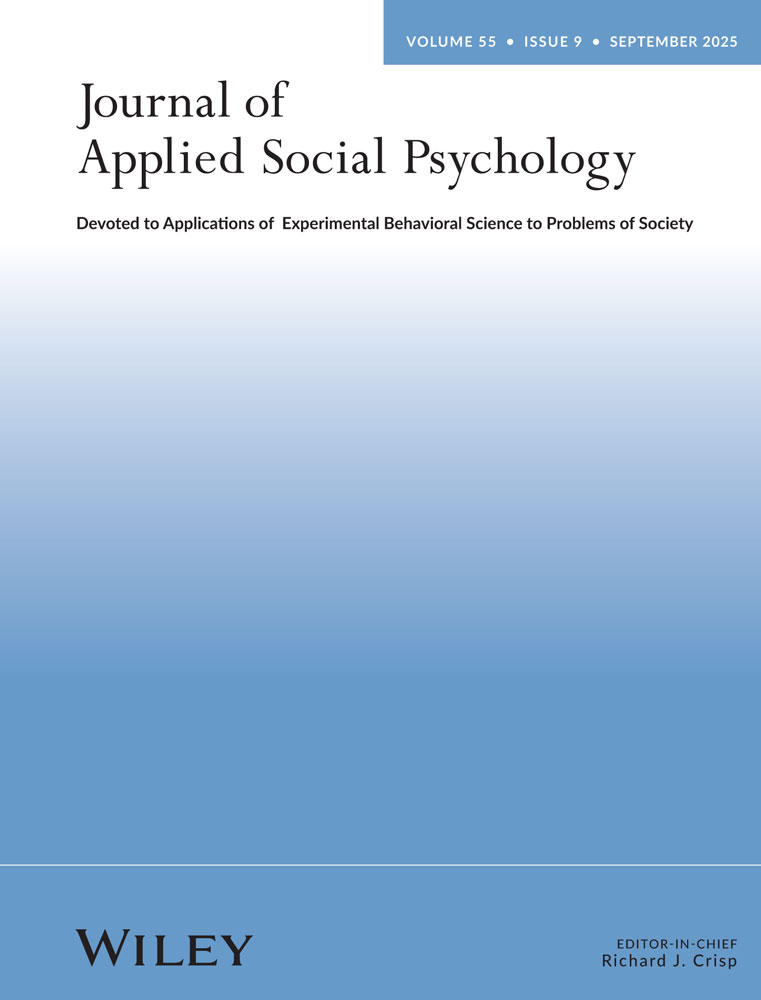How Extraversion and Need-to-Belong Relate to the Emergence and Maintenance of Identification With a New Group
Abstract
Prior research on the formation of identification with social groups has primarily examined existing groups, focusing on contextual factors that either strengthen or weaken social identification. However, this line of research has largely overlooked the importance of individual factors in shaping how identification emerges and evolves, especially when individuals enter new groups, such as starting a university education or a new job. We propose that extraversion and the need-to-belong (NTB) are two key factors related to this process. To test our assumptions, we conducted two longitudinal studies with university freshmen and one preregistered longitudinal study with newcomers to the workforce. Study 1 (NStudy1 = 272; Mage = 21.51) employed a four-wave design, while Studies 2 (NStudy2 = 296; Mage = 21.22) and 3 (NStudy3 = 348; Mage = 26.78) used a five-wave design. Across all three studies, extraversion consistently predicted the emergence of identification with a new group. In contrast, the relationship between NTB and identification with a new group was less consistent: NTB positively predicted the emergence of identification among students (Study 2) but not among new employees (Study 3). Furthermore, NTB moderated the relationship between extraversion and the development of identification for students, but not for employees.


